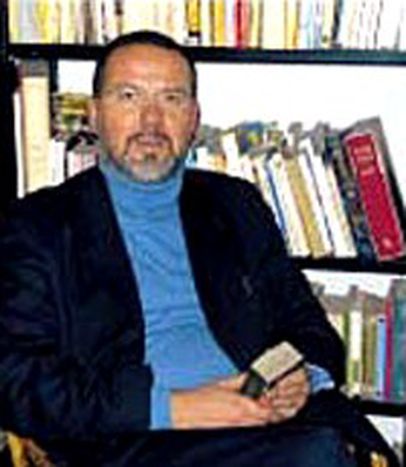
“As Pope, Ratzinger cannot be the intellectual he was before”
Published on
Translation by:
 eleanor forshaw
eleanor forshaw
Alberto Melloni, one of the most famous European experts on the Vatican, speaks freely to café babel about the concerns surrounding the new Pope.
A lecturer in History of Christianity at the Università Roma 3, Alberto Melloni’s best-known essay is Il Conclave, which has already been translated into German, Spanish, Portuguese and French.
Contrary to the ideas expressed by the reforming Second Vatican Council, it seems that the new pope wants to reduce the decision-making power of the bishops. Is this correct?
It is too early to say. There are not yet any concrete acts that would point that way. When Benedict XVI spoke about his programme, especially in his speech to the cardinals on April 20, he solemnly committed himself to follow the findings of Vatican Council, one of whose most important concerns was the question of collegiality [division of responsibility within the Church]. We will now see if he honours his commitments. It is worth noting here that the role of the bishops will not only depend on the Pope’s choices, but also on their personal ability to get noticed.
A little while ago, Ratzinger said that he was against Turkey joining the European Union. Are we dealing with an anti-European pope?
His opposition to Turkey joining the European Union was one of the strongest and strangest steps Ratzinger took when he was a cardinal. He was Prefect of the Congregation for the Doctrine of the Faith, and he spoke about a completely political topic. He was a German cardinal and spoke out against the course of his country, which is largely favourable to Turkey joining the EU. He did so to resist the entry of several thousand Muslims into the Union, when Turkey (with which the Union can and must communicate) is in fact a secular state. It is one of the many issues on which, as Pope, Benedict XVI will have to rethink his position. The position can no longer be his own, but has to be that of the Catholic Church. Unlike John Paul II (of whom no one knew anything, and who for 27 years cultivated the art of taking surprising decisions), Benedict XVI is too well-known to everybody: he has written about his opinions and he has had an extremely public role. He is therefore now “constrained” and must mediate between his private opinions and those that are the road of the Church…
Under John Paul II, the Catholic Church was decidedly against war, in particular against the war in Iraq. How will the position of the Church now evolve on the subject of pacifism?
I would be very surprised if the Church changes its point of view on war. I would be equally surprised if the Vatican’s adversity to Bush’s policies evolves. The reasons behind the Church declaring itself against the war in Iraq and against war in general remain unchanged.
Joseph Ratzinger is German. Could he reveal himself to be an environmentally-friendly Pope, in favour of sustainable economy?
Benedict XVI is a German professor, which is something else altogether: he is a man who has always enjoyed and looked for intellectual conflict. From a certain point of view, this is a problematic aspect of his leadership, because leading is very different from thinking. However, from another point of view, he is not the kind of person who can be generically associated with cultural currents: he is used to explaining his own personal position in a rational way. The subject of the “defence of the created” is a field to which the Catholic Church has committed itself in close partnership with other churches, especially during the two great European ecumenical assemblies of Basel (1989) and Graz (1997), where all the European denominations were present. It is a heritage that the new Pope, independently of his previous personal opinions, will have to watch carefully if he wants to maintain the ecumenical credibility of Catholicism, rather than please the environmental currents of the country he lived in more than twenty years ago.
Translated from «Il Papa? Non è più l’intellettuale Ratzinger»


